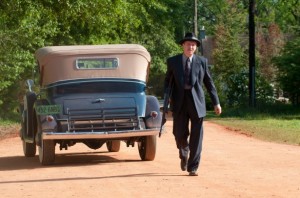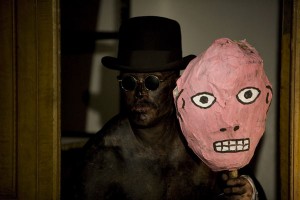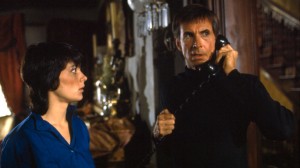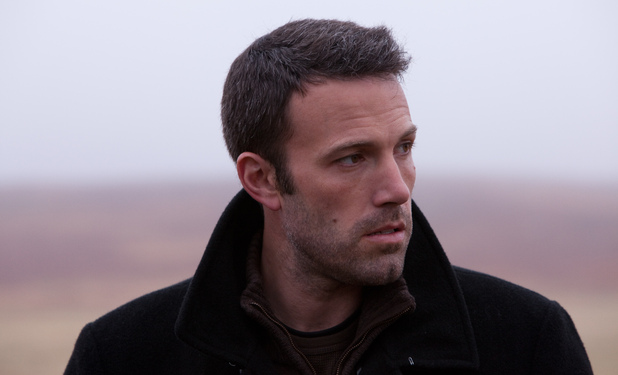
Last September, Ben Affleck sat down with BOFCA members Sean Burns, Jake Mulligan and Greg Vellante to talk about ARGO. If you know us at all, you’ve probably already guessed that the conversation eventually shifted around toward Terrence Malick’s TO THE WONDER, which had just premiered to wildly polarized reactions at the Venice Film Festival, and at the time did not yet have an American distributor.
The legendary Malick’s hotly debated sixth feature finally hits theatres and VOD this week, so we thought it might be fun to revisit what could be the longest answer ever given during a roundtable interview to a single question. (And this is after some heavy-duty editing!)
Q: How does working with someone like Terrence Malick change the way you look at filmmaking?
A: Terry is an incredible guy. I really like him. He’s a really sweet guy. I don’t know why he doesn’t do interviews, he would come off great. He’s so likeable and thoughtful. Maybe it’s just cooler to be the enigmatic guy than it is to be the guy people are trying to get around to talk to Brad Pitt.
 This movie that we just did together, I don’t know if any of you have seen it yet. I guess it hasn’t screened. It’s very experimental. It’s out there. You gotta want some Malick with your Malick. It’s a little bit like TREE OF LIFE, without the dialogue.
This movie that we just did together, I don’t know if any of you have seen it yet. I guess it hasn’t screened. It’s very experimental. It’s out there. You gotta want some Malick with your Malick. It’s a little bit like TREE OF LIFE, without the dialogue.
But it’s great. I just want people to really be ready. Some of the promotional art looks very conventional. Me and Rachel McAdams, looks like the sequel to THE VOW or something. It’s not that at all. It’s an impressionist movie, sort of a tone poem. It’s about this one woman that my character is kind of obsessed with, and so the camera is sort of obsessed with her. She talks in French and wanders around, and then you have Javier Bardem as a priest.
There were great performances that aren’t in the movie now. Rachel Weisz was in it, Barry Pepper did great stuff. Terry paints with his actors. Usually you show up and do your job and it’s this fixed job. With Terry you realize, he wants blue from you and red from her and green from him, and then he paints it all later. So it takes awhile, like what do you mean blue? Just blue?
 Then later on you watch it. And this is kind of intense, kind of amazing. He has this theory from Chekov about relationships where one is near and one is far. I always thought it was a literary first-person device rather than a filmmaking device, but basically what it came down to was the whole movie is an over-the-shoulder shot over me and onto this woman, following her and watching her, and periodically I come into the frame and kiss her and stuff.
Then later on you watch it. And this is kind of intense, kind of amazing. He has this theory from Chekov about relationships where one is near and one is far. I always thought it was a literary first-person device rather than a filmmaking device, but basically what it came down to was the whole movie is an over-the-shoulder shot over me and onto this woman, following her and watching her, and periodically I come into the frame and kiss her and stuff.
We didn’t have a script. We didn’t know what it was. You don’t know where you fit into this. He said this is a movie experimenting in silence, and we’d have these voice-overs occasionally but they really wouldn’t be about what we’re seeing. So I was terrified and thought, what do I do? And it was about learning to let go. You know what I mean? For better or for worse, you throw out everything you know and just jump off the thing and see what happens.
There are things I love about the movie, and there are things I still don’t understand. But I’m glad somebody’s out there making their own movies. When I make a movie I’m thinking, is the audience going to like this? Will they understand that? How will it play in Middle America? All these insecurities, I don’t think any of that shit ever crosses Terry’s mind. He just makes his own movie and you’re on for the ride.

TO THE WONDER opens at the Kendall Square Cinema on April 12th, when it will also be available via iTunes and Video On Demand.

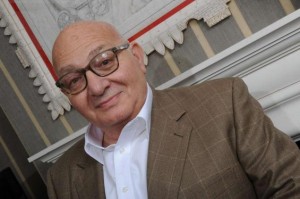
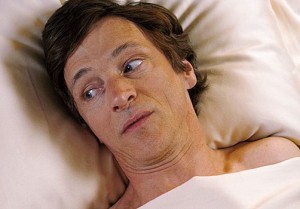 Lewin is the son of Polish émigrés who settled in Australia in his boyhood. Like O’Brien, Lewin suffered polio in childhood. He was left needing crutches, but Lewin is perfectly able to live an ordinary life; indeed, his life has extraordinary, given that the former lawyer switched careers and moved to England to become a successful filmmaker.
Lewin is the son of Polish émigrés who settled in Australia in his boyhood. Like O’Brien, Lewin suffered polio in childhood. He was left needing crutches, but Lewin is perfectly able to live an ordinary life; indeed, his life has extraordinary, given that the former lawyer switched careers and moved to England to become a successful filmmaker.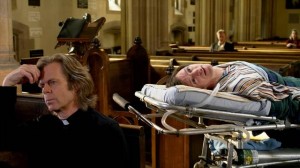 Another fine actor featured in the film is William H. Macy, who plays O’Brien’s priest, Father Brendan. At first, Macy’s man of the cloth –who is “a Berkeley hippie priest,” Lewin notes — is deeply troubled by the idea of intercourse with a sex therapist. But as Father Brendan gazes at the crucifix hanging above the altar of his church, he seems to hear an answer from The Divine: “Go for it,” he tells O’Brien.
Another fine actor featured in the film is William H. Macy, who plays O’Brien’s priest, Father Brendan. At first, Macy’s man of the cloth –who is “a Berkeley hippie priest,” Lewin notes — is deeply troubled by the idea of intercourse with a sex therapist. But as Father Brendan gazes at the crucifix hanging above the altar of his church, he seems to hear an answer from The Divine: “Go for it,” he tells O’Brien.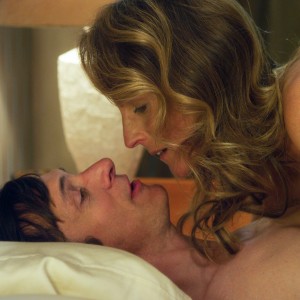 techniques.’ ”
techniques.’ ”


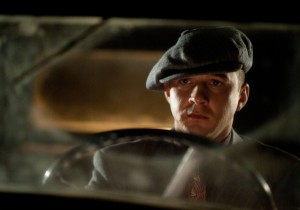 Q: Loved the book. But it’s billed as “a novel based on a true story.” So how autobiographical –or I guess maybe just biographical– is it, really?
Q: Loved the book. But it’s billed as “a novel based on a true story.” So how autobiographical –or I guess maybe just biographical– is it, really? A: It’s very impersonal, the transaction. Your agent calls you from L.A. and etcetera, etcetera. Then you sign contracts and it kinda goes away. It’s happening somewhere else and you don’t think anything of it for a long time. And then when Hillcoat becomes attached, then Nick Cave… like a lot of people, I loved THE ROAD but I wasn’t aware of THE PROPOSITION yet. I was of course aware of Nick Cave as a musician, but not as a screenwriter. It was really cool because from the very beginning I felt like I was in good hands, with Hillcoat and Cave as a team? And Shia LeBeouf was attached, so I thought that was great because he has some weight to pull around and maybe he could make things happen. And he did. He stuck with it. Even after people came on and dropped off, and it went into turnaround and Columbia Pictures dropped it. I don’t understand how this stuff works.
A: It’s very impersonal, the transaction. Your agent calls you from L.A. and etcetera, etcetera. Then you sign contracts and it kinda goes away. It’s happening somewhere else and you don’t think anything of it for a long time. And then when Hillcoat becomes attached, then Nick Cave… like a lot of people, I loved THE ROAD but I wasn’t aware of THE PROPOSITION yet. I was of course aware of Nick Cave as a musician, but not as a screenwriter. It was really cool because from the very beginning I felt like I was in good hands, with Hillcoat and Cave as a team? And Shia LeBeouf was attached, so I thought that was great because he has some weight to pull around and maybe he could make things happen. And he did. He stuck with it. Even after people came on and dropped off, and it went into turnaround and Columbia Pictures dropped it. I don’t understand how this stuff works.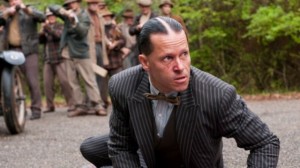 Q: What did you make of that Guy Pearce performance?
Q: What did you make of that Guy Pearce performance?